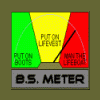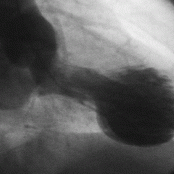-
Posts
757 -
Joined
-
Last visited
-
Days Won
17
Doczilla last won the day on November 1 2017
Doczilla had the most liked content!
Previous Fields
-
Occupation
EMS Physician
Contact Methods
-
Website URL
http://
-
ICQ
0
Profile Information
-
Gender
Male
Recent Profile Visitors
54,957 profile views
Doczilla's Achievements
-

Cadaver, Anatomy, and Procedure Lab for EMS March 20 & 21
Doczilla replied to Doczilla's topic in Education and Training
Funny thing, everyone was kind of freaked out by how hard she hit, so nobody offered. The following year, I wanted to make the slogan, "So much learning it will make your brain bleed" but was vetoed by the boss. 'zilla -
Doczilla started following C-Collar only immobilization , Old folks Still here? , Cadaver, Anatomy, and Procedure Lab for EMS March 20 & 21 and 2 others
-
Still kicking! Although moved a thousand miles or so. Goodbye Ohio, hello Texas! ’zilla
-
There is the "tyranny of distance" as it is referred to in combat medicine, where the tactical situation prolongs extraction of a patient to definitive care. I have seen tactical situations where an ambulance was parked 100 yards away but took 30 minutes or more to reach the patient because of safety concerns and volatility of a situation. For extracting the patient, who will do that when the officers on the SWAT teams are engaged in a search for the subject or explosive devices? That's not a setting the average street medic is trained to be in. TECC training and the Rescue Task Force concept gets us closer to where we need to be, but this trauma care at the point of wounding is a small portion of what the SWAT medic does. Many SWAT teams, mine included, do foot patrols to locate subjects in wooded areas that are a significant distance from a road or other route of extraction. Those medics have to carry not only their tactical protective gear (body armor, helmet, gloves, gas mask) but also water, snacks, and medical supplies. If you look at the average "first in" bag on an ambulance, it is not in any way designed for being carried a distance over rough terrain for a long period of time. So they need to have a kit that is specially designed with that in mind (it's more than throwing stuff together. Much of the kit has to be repackaged altogether, and interesting choices made to reduce size and cube.) And that whole time you are advancing on a subject that may be lying in wait for you. The average street medic has probably not been trained in tracking, terrain selection, and counter-ambush techniques. And then there is the prolonged field care during extraction from that scene. Carrying a grown man over rough terrain takes a lot of time, a lot of people, and cannot be done easily. The SWAT medic is also responsible for team health, preventive medicine, minor injury care, sick call, medical contingency planning, and analysis of medical resources. No mission goes out the door without a medical plan and the SWAT medic is the one to create it. Appropriate hospitals for various issues, casualty collection points (primary and secondary) unconventional means of carrying patients there from and possibly through a hostile environment, conventional prehospital medical systems (EMS, flight) and their capabilities. Commo plans are an achilles heel at all times and need to be vetted, but no cop knows how to get hold or a hospital, so that falls to the medic. A team that has a mishap grilling food for the group may find itself completely combat ineffective for the mission if there is a case of food poisoning. Someone has to think about that, and someone has to treat it to keep guys on the line. Something as simple as a dental issue can be a distraction for someone at the wrong time. A corneal abrasion, properly treated, is the difference between the operator finishing that mission or not. SWAT medics fill many responsibilities other "take care of the guys that's shot."
-
You don't actually need to be in the military. There are plenty of non-military SWAT medics. You don't necessarily have to have police training. You have to have solid EMS skills and know someone on the department to get on board, typically.
-

Cadaver, Anatomy, and Procedure Lab for EMS March 20 & 21
Doczilla replied to Doczilla's topic in Education and Training
We have great OB services, even high risk and NICU. 2 years ago we had a student at the class faint and get an epidural hematoma, so she got to meet our trauma service. (she was fine) -

Who's going to CAP Lab in Ohio this year?
Doczilla replied to Eydawn's topic in General EMS Discussion
I understand I was there in spirit, thanks to Dr. Bohn.... I really have to pay him back for that slide in his lecture. -

Who's going to CAP Lab in Ohio this year?
Doczilla replied to Eydawn's topic in General EMS Discussion
Apparently you work for an awesome team. -

Who's going to CAP Lab in Ohio this year?
Doczilla replied to Eydawn's topic in General EMS Discussion
Sadly, I am deployed this year, so I will miss the 10th CAP Lab for the first time. Sorry that I'll miss you. Dr. Tucker and his minions have everything well in hand, and it sounds like a good program this year. 'zilla -

Colleague Not Fit for Duty (Blood Sugar) advice needed
Doczilla replied to Riblett's topic in Education and Training
This is a VERY dicey issue. There are ADA issues at play, as well as potentially union rules, state law, etc. This is one of those areas you do not want to try to figure things out on your own. Adverse personnel action could create significant liability exposure for the agency. I would do nothing without the help of human resources. -
I've been heavily involved with this in our state and elsewhere. SSI has been around for a long time, but where we are changing the thinking is in not having the patient remain on the backboard once moved from point of injury to the stretcher. I've had emails from several states asking for our protocols, clinical justification, and training materials. NAEMSP came out with a position paper on it last year as well. The original position paper was pretty strongly worded about doing away with the LBB as much as possible, but a consensus document with ACS-COT was created, and it was softened to get buy-in from the surgeons. Some have gone on a system wide basis, while others are doing it at the state level. It's been very well accepted, and I'm getting emails on the ACEP EMS list indicating that more areas are doing it. It's widespread enough now that adopting the protocol is no longer "outside" the usual care, but an accepted practice. It's a tide, hopefully for good. 'zilla
-
Dates posted for CAP Lab 2013: Dec 3 and 4. https://www.facebook.com/EMSCAPLab http://med.wright.edu/em/caplab 'zilla









